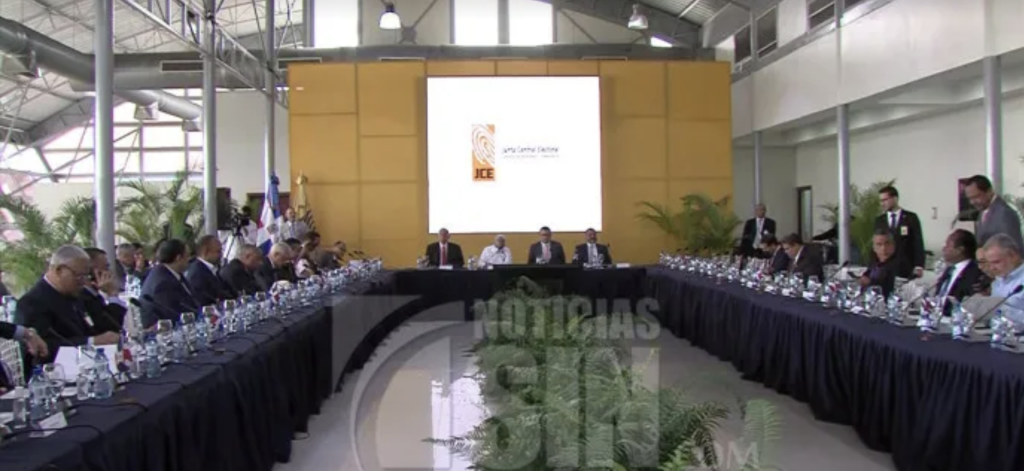
Political party representatives are again active in work sessions of the Economic and Social Council on electoral reform. Both Political Party Law 33-18 and Electoral Regime Law 15-19 required numerous amendments by the Superior Electoral Court and the Constitutional Court into the 2020 general elections. Now the Central Electoral Board (JCE) seeks these laws to be overhauled in time for the 2024 general elections.
Given the delays in the discussions at the CES platform, the JCE went ahead and submitted a bill for electoral law reform to Congress. This lead the political parties to react and return to the discussion table of the CES.
Meanwhile, the Chamber of Deputies held a public hearing on proposals for an alternate Electoral Code. Participants called for presidential candidate debates to be mandatory and for more transparency in the use of taxpayer monies allotted to the political parties, and the oversight to avoid that drug trafficking and government corruption money pervading the political parties.
Nevertheless, the Electoral Code initiative is rejected by the board of the JCE on grounds it would not be ready in time to be used for the 2024 general elections. The JCE backs the revamping of the Political Parties and Electoral Regime Law and has submitted its recommendations in bills to the Senate in early April 2022.
The same position is held by the president of the Economic and Social Council, Rafael Toribio, who also considered that the discussions of the changes to the pieces in two scenarios at the same time can benefit their quick enactment.
During the CES meeting consensus was reached on dozens of articles. The next meeting is set for 10 May 2022.
Read more in Spanish:
El Nuevo Diario
Noticias SIN
Hoy
Listin Diario
27 April 2022

